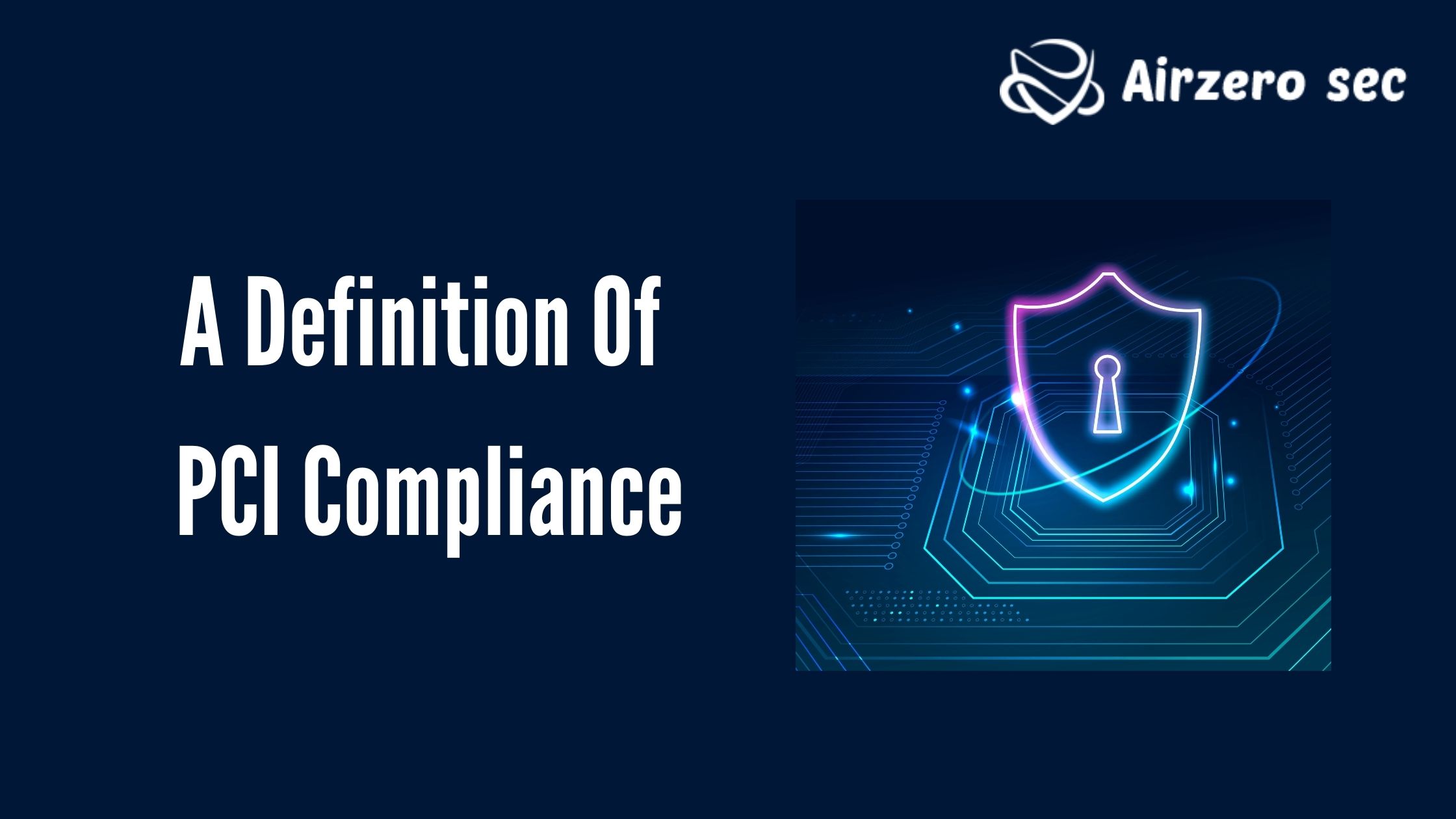
The payment card industry data security standard is a set of needs to be intended to ensure that all organizations that process, store, or transmit credit card information maintain a secure surrounding. An independent body created by Visa, MasterCard, American Express, Discover, and JCB, administers and manages the PCI DSS. Interestingly, the payment brands and acquirers are responsible for strengthening compliance, rather than the PCI SSC.
An Overview Of PCI SSC Data Security Standards
In an effort to enhance payment card data security, the PCI Security Standards Council provides comprehensive standards and support things, which include frameworks, tools, measurements, and support resources to help companies ensure the security of cardholder information at all times. The PCI DSS is the cornerstone of the council, as it provides the necessary framework for developing a complete card data security process that encompasses prevention, detection, and is the appropriate action to security incidents.
What are the Tools Available from PCI SSC?
- Self-Assessment Questionnaires to assist companies in validating their PCI DSS compliance.
- PIN Transaction Security needs for device vendors and manufacturers and a list of consented PIN transaction devices.
- Payment Application Data Security Standard and a list of Payment Applications to help software technologies and others develop safe payment applications.
- Public resources: * Lists of Qualified Security Assessors. * Payment Application Qualified Security Assessors. * Approved Scanning Vendors * Internal Security Assessor education program
What Are The 12 Requirements For PCI DSS Compliance?
- USE AND MAINTAIN FIREWALLS:
Firewalls essentially remove access to foreign entities attempting to access personal data. These prevention systems are often the first line of defence against attackers. Firewalls are needed for PCI DSS compliance because of their effectiveness in preventing unwanted access. - PROPER PASSWORD PROTECTIONS: <br.Routers and other third-party things often come with generic passwords and safe measures simply accessed by the public. Too often, businesses fail to save these vulnerabilities. Ensuring compliance in these places includes keeping a list of all devices and software which require a password. In addition to a device inventory, common precautions and configurations should also be enacted.
- PROTECT CARDHOLDER DATA:
The third need of PCI DSS compliance is the two-fold firewall of cardholder data. Card Data must be encrypted with some important algorithms. These encryptions are put into place with an encryption key which is also needed to be encrypted for compliance. Regular check and scanning of primary account numbers are needed to ensure unencrypted data exists. - ENCRYPT TRANSMITTED DATA:
Cardholder data is sent across a number of different ordinary channels. This data must be encrypted whenever it is sent to these known areas. Account numbers should also never be transferred to areas that are unknown. - USE AND MAINTAIN ANTI-VIRUS:
Enabling anti-virus software is a great practice outside of PCI DSS compliance. However, anti-virus software is required for all machines that interact with and store PAN. This software should be regularly checked and updated. Your POS provider should also employ anti-virus measures where it cannot be directly enabled. - PROPERLY UPDATED SOFTWARE:
Firewalls and anti-virus software will need to be updated often. It is also a good idea to update every piece of software in a business. Most software technologies will add security measures, such as patches to address recently identified vulnerabilities, in their updates, which add another level of security. These updates are especially required for all software on devices that communicate with store cardholder data. - RESTRICT DATA ACCESS:
Cardholder data is required to be important “need to know.” All staff, executives, and third parties who do not need access to these details should not have it. The roles that do need sensitive data should be well-documented and updated regularly as required by PCI DSS. - UNIQUE IDS FOR ACCESS:
Persons who do have access to cardholder data should have personal credentials and identification for access. For instance, there should not be a simple login to the encrypted data with multiple employees knowing the username and password. Unique IDs create less vulnerability and a faster response time in the event data is compromised. - RESTRICT PHYSICAL ACCESS:
Any cardholder data must be physically kept in a safe area. Both data that is physically written and data that is digitally kept should be locked in a safe room, drawer, or cabinet. Not only should access be boarded, but anytime the private data is accessed, it should be kept in a log to remain compliant. - CREATE AND MAINTAIN ACCESS LOGS:
All activities dealing with cardholder details and primary account numbers require a log entry. Perhaps the most common non-compliance issue is not efficient record-keeping and data when it comes to accessing private data. Compliance needs to document how details flow into your institution and the number of times access is required. Software products to log access are also required to ensure accuracy. - SCAN AND TEST FOR VULNERABILITIES:
All ten of the previous compliance involve several software products, physical locations, and likely a few employees. There are many needs that can malfunction, go out of date, or suffer from manual error. These problems can be placed by fulfilling the PCI DSS needed for regular scans and vulnerability testing. - DOCUMENT POLICIES:
Inventory of equipment and software that have access will need to be spotted for compliance. The logs of enabling cardholder data will also need documentation. How details flow into your company, where it is kept, and how it is used after the point of sale will also all need to be data. - BENEFITS OF PCI COMPLIANCE
Complying with PCI Security Standards seems like a daunting plan, at the very least. The maze of standards and issues seems like a lot to handle for large companies, let alone little companies. Yet, compliance is becoming more important and may not be as troublesome as you assume, especially if you have the right options. - DIFFICULTIES POSED BY PCI NON-COMPLIANCE
PCI SSC also points to potentially disastrous results of failing to meet PCI Compliance. After working to build your brand and secure customers, don’t take an option with their sensitive details. By meeting PCI Compliance, you are protecting your clients so they can continue to be yours. Possible results of PCI Non-Compliance include: - Compromised data that negatively impacts consumers, merchants, and financial institutions.
- Severely damaging your reputation and your ability to conduct business effectively, not just today, but into the future.
- Account data breaches can lead to catastrophic loss of sales, relationships, and community standing; plus, public companies often see depressed share prices as a result of account data breaches.
- Lawsuits, insurance claims, cancelled accounts, payment card issuer fines, and government fines.
PCI Compliance, as with other regulations needs, can pose challenges to organizations that are not prepared to deal with protecting crucial details. But, protecting data is a much more manageable task with the right software and services. Choose a data loss prevention software that accurately classifies data and uses it appropriately so you can rest more easily knowing that your cardholder data is safe.
If you have any doubts about the above topic or have to get services and consultations against every serious cyber problem. Feel free to contact us. AIRZERO SEC will be your strong cyber partner. E-mail id: [email protected]
 Author - Johnson Augustine
Author - Johnson Augustine
Ethical Hacker and Data Security Researcher
Founder: Airo Global Software Inc
LinkedIn Profile: www.linkedin.com/in/johnsontaugustine/
